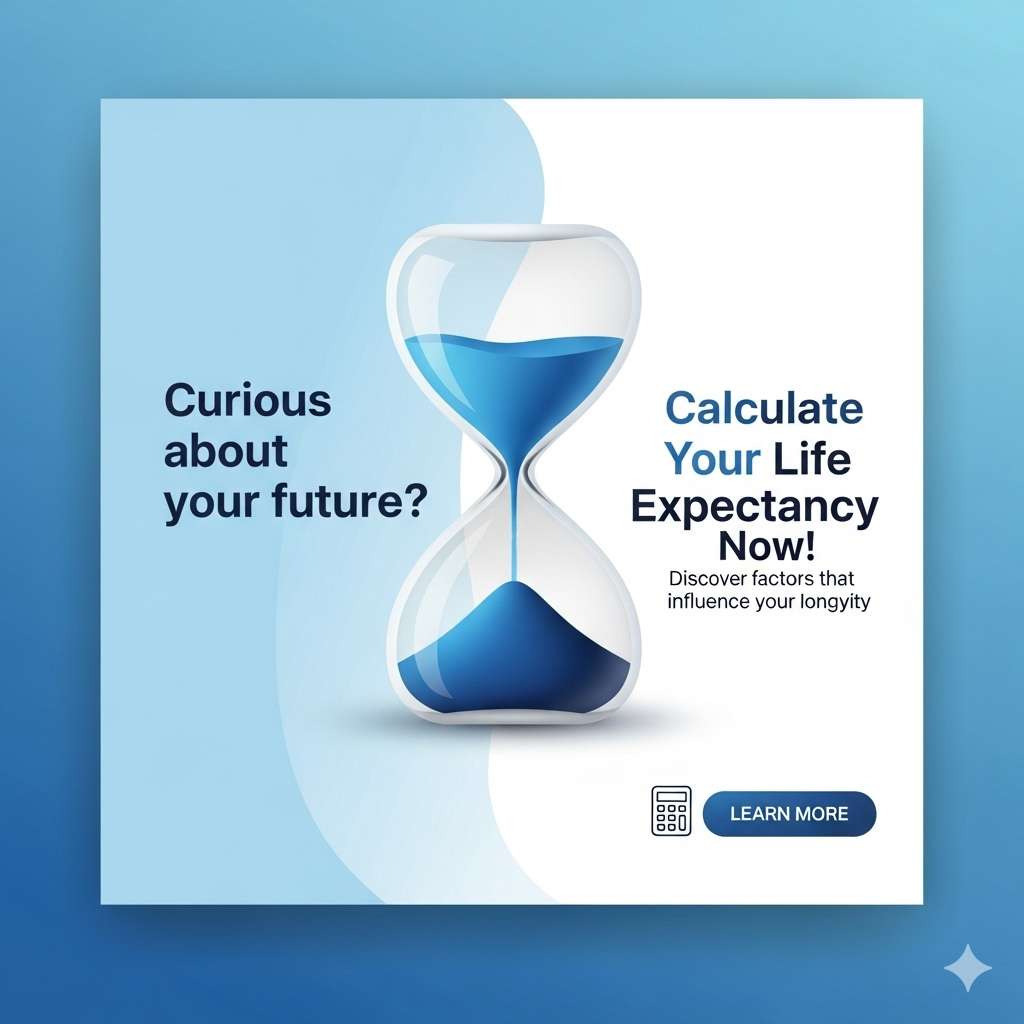Imagine this: a scientist, using advanced AI, could analyze all your health, genetic information, and lifestyle data—and give you an estimate of how many years of good health you might have left. Would you want to know?
People usually fall into one of two camps.
- The Curious Optimists: They believe knowing an approximate “health span” could motivate them to live life more fully. They’d make smarter choices in relationships, careers, and personal goals, using the information as fuel to enrich their lives.
- The Wary Pessimists: For them, any countdown—even an estimate—could cast a shadow over happy moments. They might constantly worry about whether they are living “enough,” and knowing their personal timeline could make a bad situation feel even worse.
A Smarter Way to Measure Life: Healthy Life Expectancy
Actuaries at the University of Connecticut, led by Jeyaraj Vadiveloo, took these concerns into account when developing a new online life expectancy tool. Instead of predicting your death date, this calculator estimates how many healthy years you might have left, providing actionable insight rather than anxiety.
Vadiveloo, director of the Janet and Mark L. Goldenson Center for Actuarial Research, explained in The Conversation that the tool became so popular it crashed shortly after launch. Its purpose is not only personal awareness—it can help society plan for healthcare, retirement, insurance, and social security policies.
Rather than focusing on merely adding years to life, the goal is adding more healthy years to the life you already have.
How Does It Work?

This life expectancy calculator uses two metrics:
- Healthy Life Expectancy: Years expected to live in good health.
- Unhealthy Life Expectancy: Years likely to be spent with serious health limitations.
The actuaries discovered that women generally enjoy a longer healthy life expectancy, though the reasons remain unclear.
Several factors influence healthy life expectancy:
- Exercise and diet
- Sleep quality
- Alcohol intake and smoking habits
- Type 2 diabetes status
- Education and income levels
- Personal perception of health
Surprisingly, how you perceive your own health can have a measurable impact. And the best part? Most of these factors are within your control.
For example, Vadiveloo illustrated that a 60-year-old man who follows a healthy lifestyle—exercising regularly, eating well, and managing risk factors—could expect 13 more healthy years compared to a counterpart with an unhealthy lifestyle.
A Work in Progress
While promising, the tool has not yet been tested with real-world outcomes. It cannot predict unforeseen events, like accidents or natural disasters. However, the modeling used is consistent and considered accurate for its intended purpose.

